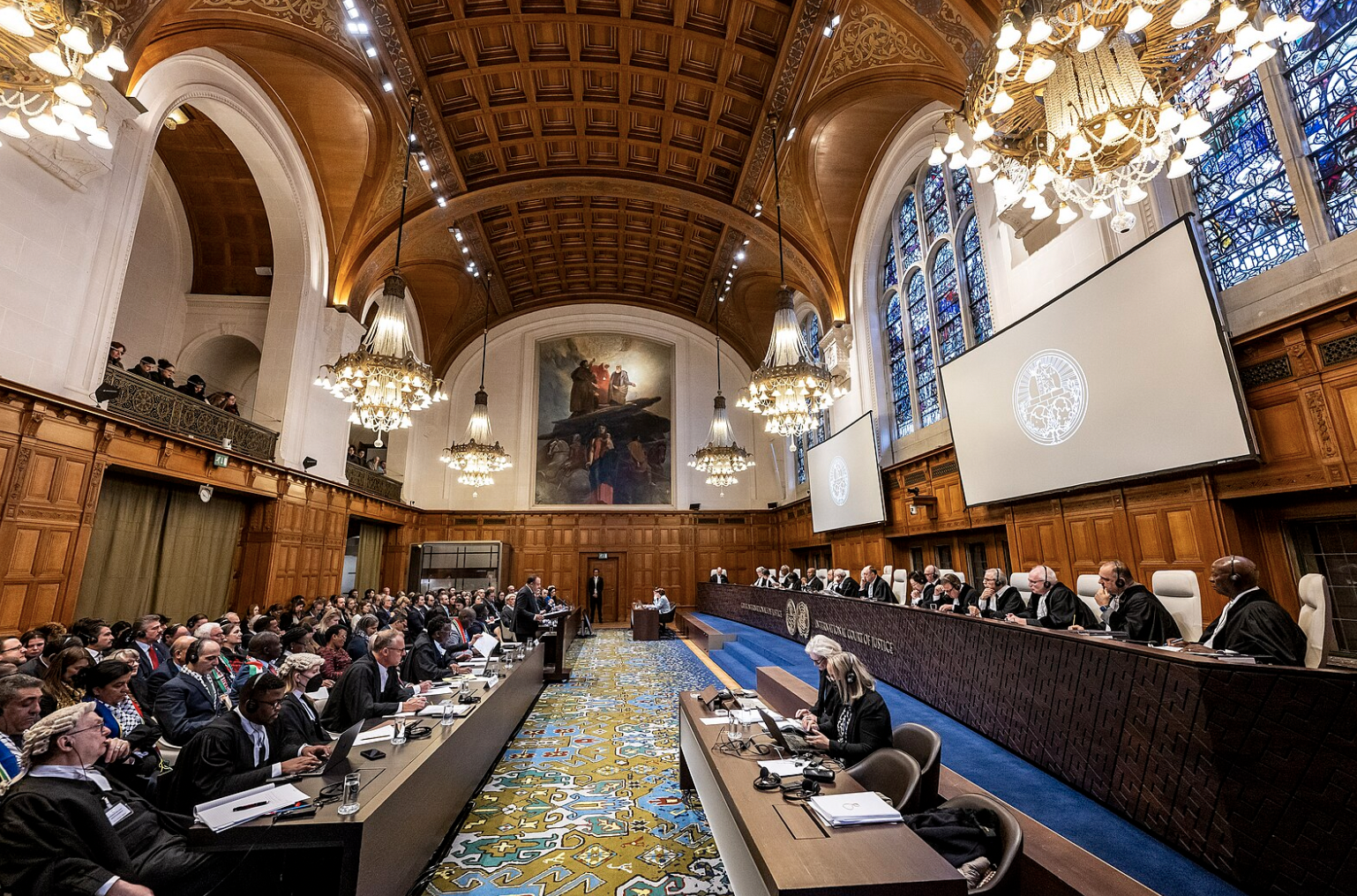Questioning western morality: The ICJ trial and South Africa's allegations against Israel
image courtesy of Wikimedia Commons
The Israeli-Palestinian conflict predates its recent escalation on October 7th, 2023, when Palestinian militant group, Hamas, stormed the Gaza border, killing over 1,200 people and abducting around 240 hostages. For over 100 days, Israel’s war on Gaza has resulted in over 23,000 civilian casualties, as reported by the Hamas-run health ministry.
In response to these events, South Africa has accused Israel of committing genocide, asserting a breach of the 1948 Genocide Convention. Public hearings on South Africa’s case began on January 11th at the International Court of Justice (ICJ), with South Africa putting forward a five-point argument seeking the accountability and end of the alleged humanitarian violations committed by Israel. While Israel claims its actions were in self-defence, Adila Hassim, a representative of South Africa, accused Israel of five key “genocidal acts”:
Mass killings of Palestinians
Inflicting serious mental and bodily harm on Palestinians
Forced displacement and food blockade
Destruction of the healthcare system
Prevention of Palestinian births.
Reactions to South Africa’s genocide case vary, revealing global divisions between Israel and its Global North allies, and the Global South, comprising countries with developing economies across Africa, the Middle East, Asia, Oceania, Latin America and the Caribbean. While some countries maintain diplomatic stances, many of Israel’s Western allies remain strong supporters. No Western countries have backed South Africa’s case to date, with Germany being one of Israel’s most vehement supporters, voicing their intent to intervene as a third party on behalf of Israel at the ICJ, despite 61% of Germans finding Israel’s response undue, considering civilian casualties. Strong support for South Africa comes from the Global South, including Turkey, Jordan and Brazil, with Bangladesh filing a declaration of intervention in the ICJ case. Criticisms of Berlin’s support for Israel come from Namibia, a former German colony, who accused Germany of committing genocide in the early 1900s, killing tens of thousands of Namibians.
The genocide case against Israel has garnered global attention, prompting scrutiny of Western moral authority and perceived hypocrisy of the world’s most influential and dominating nations and their reluctance to hold Israel accountable. Consequently, how can we trust dominant Western players to serve as the ‘world’s policemen’ when their seats of power stem from colonial legacies, heinous war crimes and a history marked by a plethora of human rights violations? Furthermore, while it is easy to say that war and death are unjust, the question of the relevancy of morality within the context of South Africa’s allegations against Israel must be argued, regarding realist and liberalist philosophies. Succinctly put, within the field of international relations, realism posits the international system is anarchic and that statecraft is principally devoted to ensuring national survival, driven by competitive self-interest. Contrarily, liberalism focuses on the inherent ‘goodness’ of human nature, measuring power through the potential for peace, cooperation, freedom and the like, arguing that upon the creation of interconnected systems between states by globalisation, focus must shift towards more altruistic perspectives. While this is a nice idea, we currently, arguably, live in a realist world that operates to protect self-interest and promote self-preservation.
Genocide is notoriously difficult to prove. Although the death toll has reached 23,000 and continues to rise, it is challenging to conclude that the death of 1% of the Gazan population signifies a deliberate Israeli effort to destroy the Palestinian people, “in whole or in part”. The ICJ will take years before reaching a verdict on the allegations of genocide, so what can be done in the meantime? South Africa has submitted an appeal for the ICJ to issue provisional measures to protect the Palestinian people against further harm, calling for Israel to “immediately suspend its military operation in and against Gaza”. If obeyed, Israeli military efforts would stop within weeks, before achieving its objective of eliminating Hamas as a political and military force in Gaza. However, although legally binding, the ICJ implements its verdicts through public pressure and lacks any real power to enforce its judgement on a nation, as seen in 2022, when Russia failed to comply with ICJ orders to “immediately suspend military operations” in Ukraine.
The need for an immediate ceasefire and urgent humanitarian aid in Gaza is clear, whatever the political context. However, the relative morality regarding Western support for Israel’s military campaign against Hamas in the Gaza Strip is irrelevant in a realist world, where the protection of national interests, such as international shipping lanes in the Red Sea, acts as a driving force for Western support and intergovernmental global organisations have no real methods of enforcing laws. However, as the significant influence wielded by the Global North wanes, South Africa’s case displays the growing challenges facing the old Western-dominated order and a possible global shift towards more liberalist ideas as governments face unprecedented public challenges and dissent over their support for Israel.

